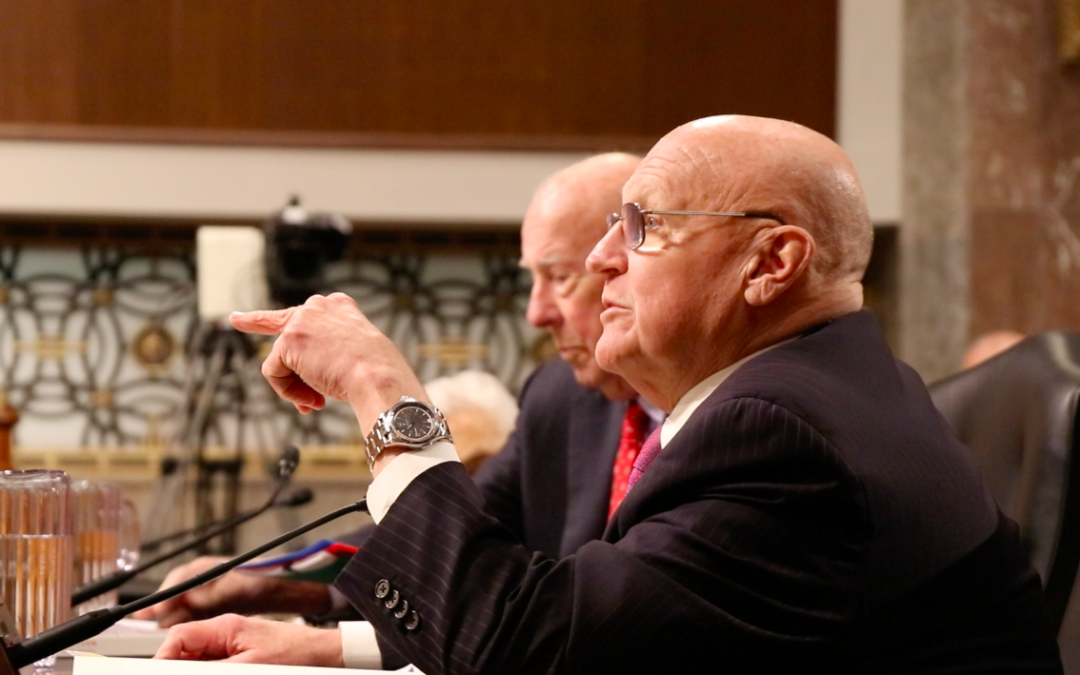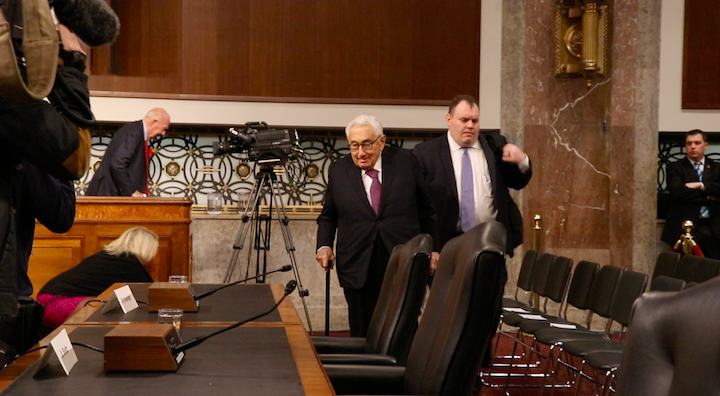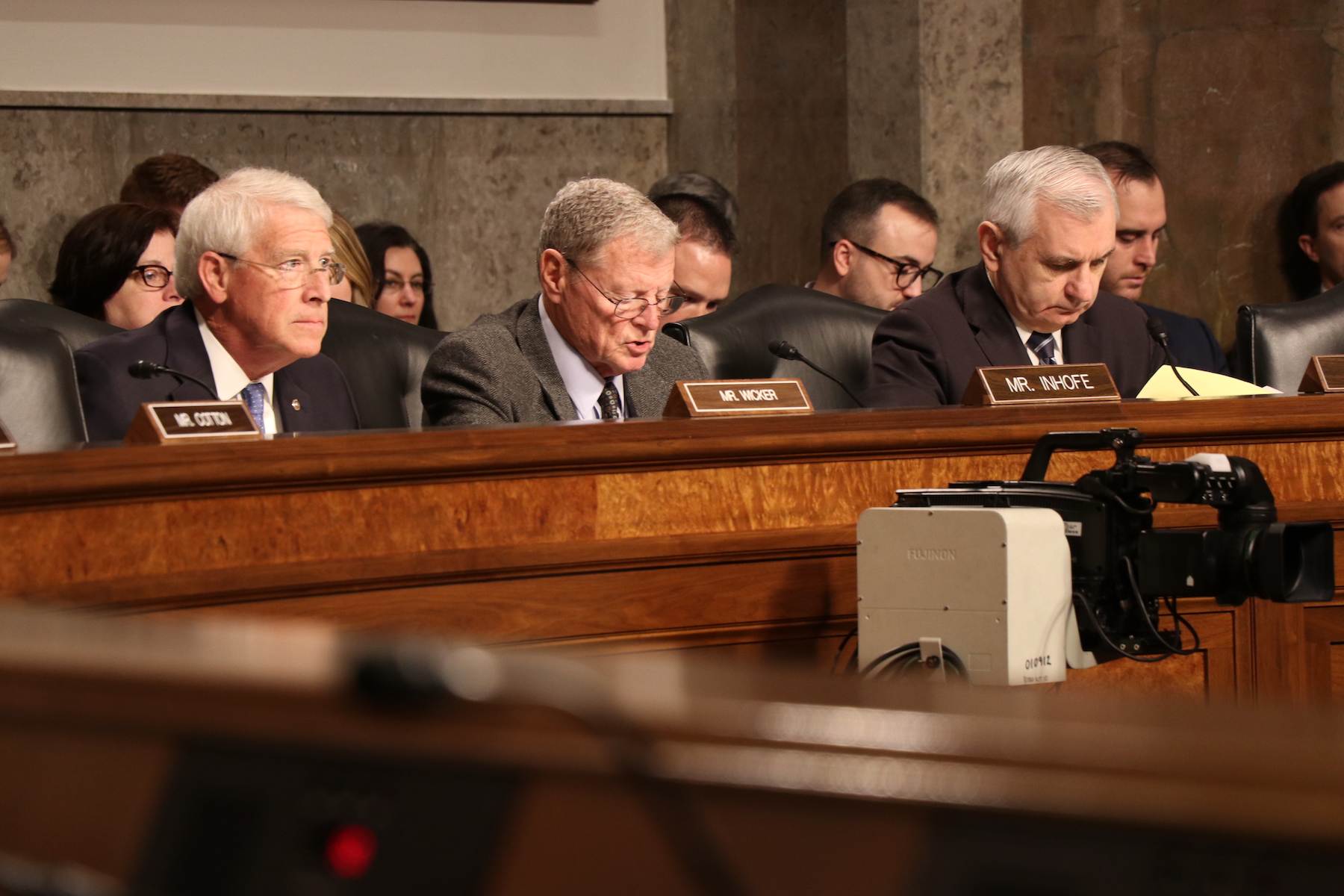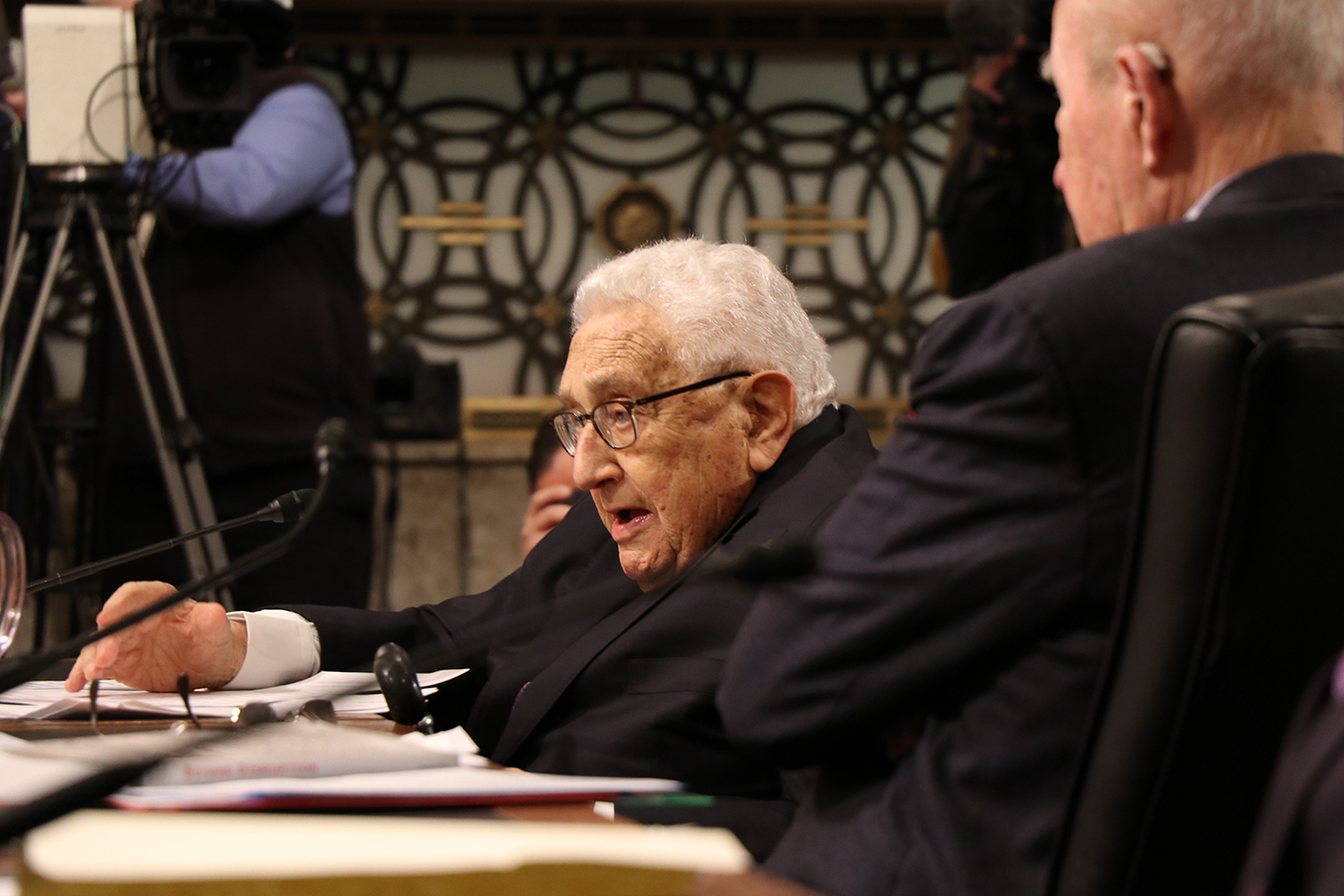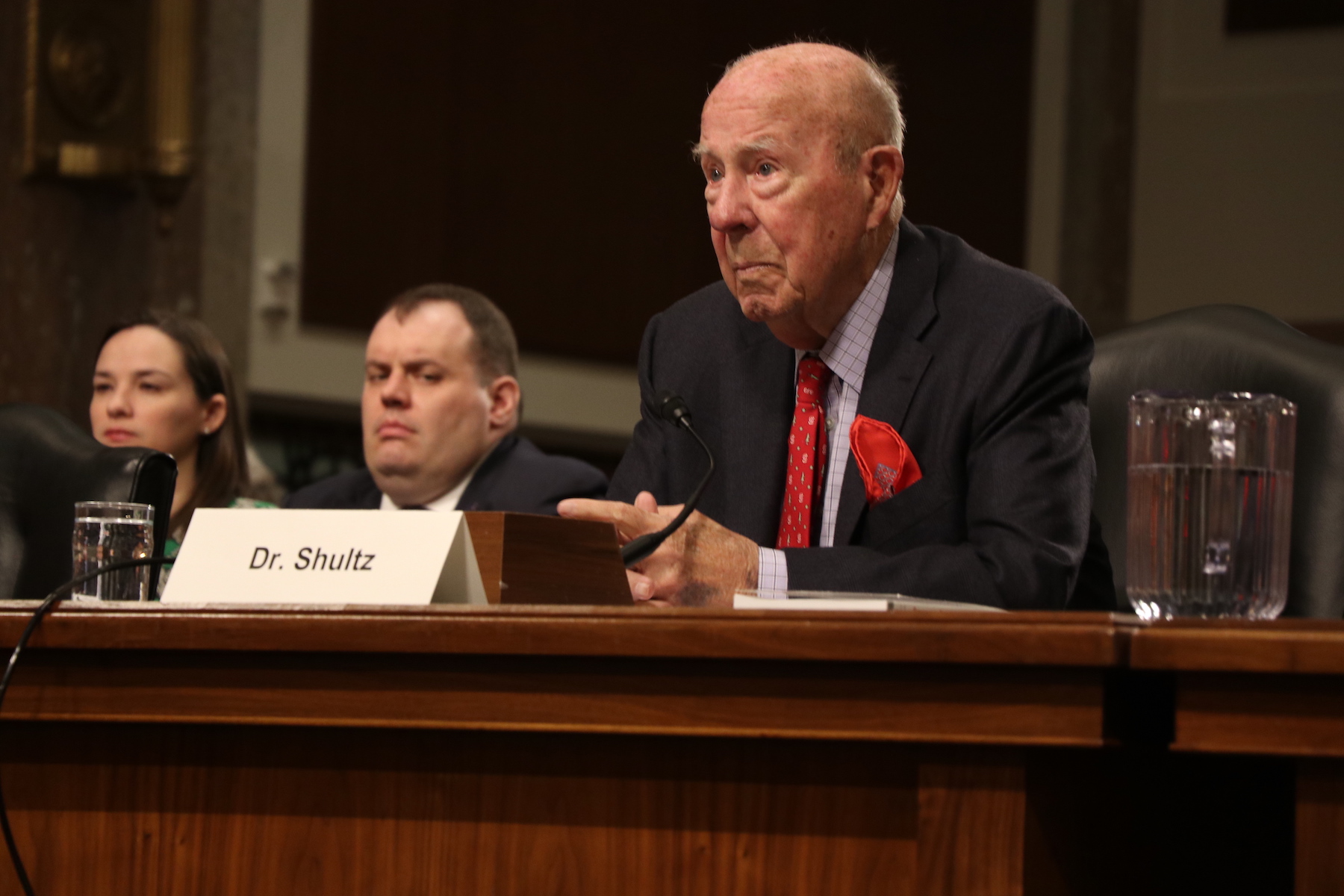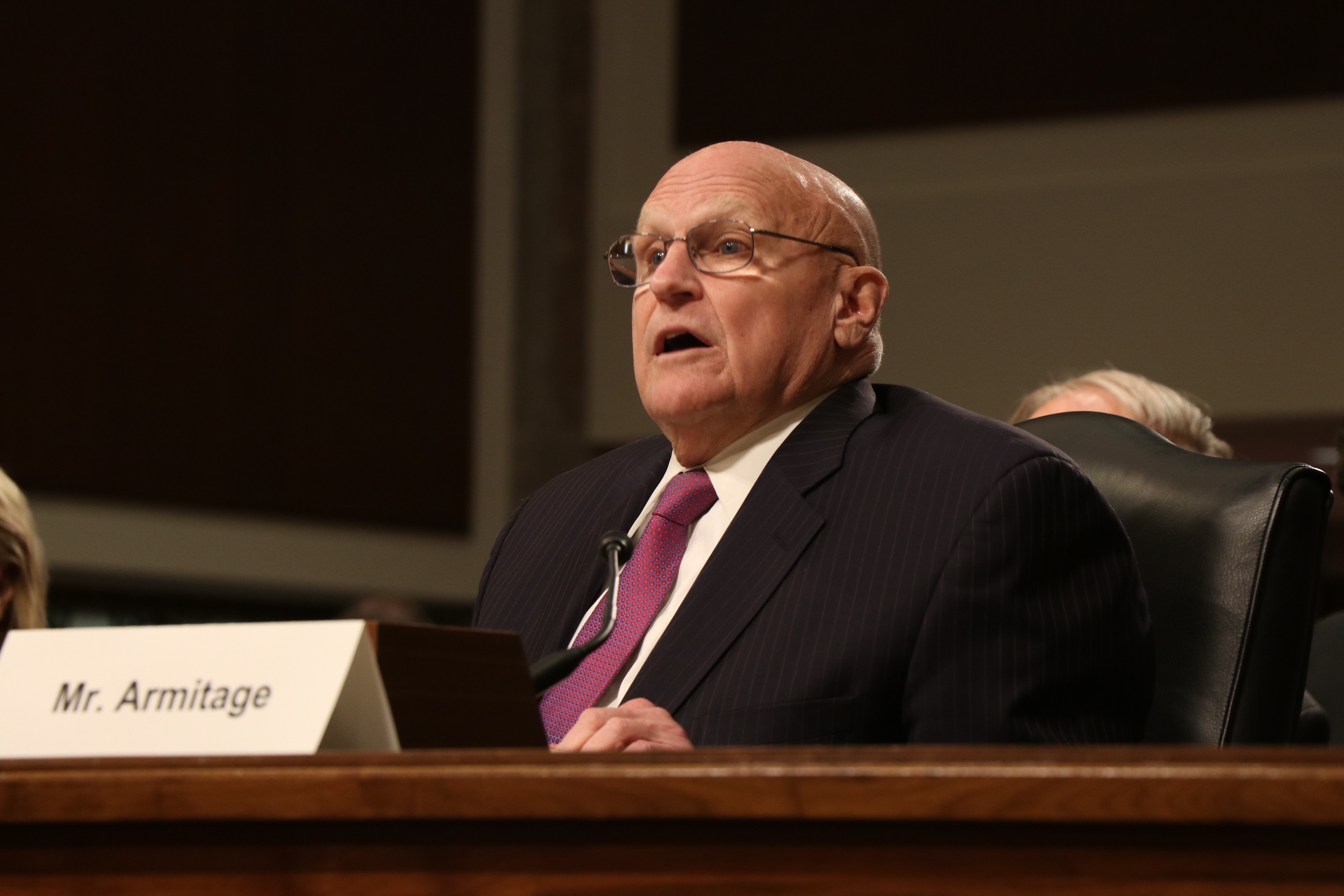WASHINGTON- A failure to shut down North Korea’s nuclear program would not only pose a threat to U.S. territory, former Secretary of State Henry Kissinger told a congressional panel. It would encourage other countries to develop their own atomic arsenals, perpetuating a dangerous spread of the world’s deadliest weapons.
“If North Korea still possesses some nuclear capability, other countries in the region are likely to come to the conclusion that it is safe to proceed with their own nuclear programs,” Kissinger said Jan. 25 in testimony before the Senate Armed Services Committee. “Once that line is crossed, you are in a world in which we have no experience.”
Kissinger warned that U.S. ally South Korea would “not accept being the only Korea without nuclear weapons.” If leaders in Seoul decide to pursue their own nuclear arsenal, other Asian countries such as Japan would quickly do the same.
“Then we’re living in a new world in which technically competent countries with adequate command structures are possessing nuclear weapons,” he said. “That is a new world that will require new thinking by us.”
Kissinger, who served under Presidents Richard Nixon and Gerald Ford, was joined by former Secretary of State George Shultz, who worked for President Ronald Reagan, and former Deputy Secretary of State Richard Armitage, who served under President George W. Bush.
Shultz agreed with Kissinger on the severity of the nuclear proliferation threat, adding that he worried that leaders failed to grasp the disastrous effects of nuclear war.
“In the Reagan days, people had an appreciation for what a nuke could do,” Shultz said. “I fear people have lost that sense of dread.”
While hostile powers armed with nukes remain a major concern, the threat is not yet “existential,” Armitage said, because no U.S. adversaries have both the intent and capability to threaten its survival.
“Although China and Russia are the two most capable competitors we face at present, I do not believe that they presently possess that intent,” he said. “Iran, North Korea and terrorist groups may desire to undermine our system, but they do not yet have the capability to threaten our way of life.”
Shultz and Kissinger agreed with Armitage, saying that, while ties between rival powers such as China and Russia likely will develop into the key long-term threat, both are too preoccupied with their own domestic challenges right now to threaten the U.S. with immediate danger in the same way as North Korea.
“Big declines are coming in the populations of both China and Russia,” said Shultz. In addition, “the Russian economy is not as big as Italy’s, despite [having] twice as many people. That shows how poorly they’re running their economy.”
All three agreed that nuclear war was not yet imminent, but they warned it should not be taken lightly.
“When you put your finger on that nuclear button that could kill a million people, you’re not president anymore,” Shultz said. “You’re God. And who are we to play God?”

